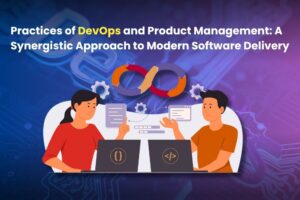The past few years have seen the rapid growth of DevOps in the software development space. The conversation now shifts from “What is DevOps” to “How can I use DevOps?” Both development and operations work together as a DevOps team. Their integration together creates a bridge that minimizes the use of software. The DevOps revolution is growing rapidly because it accelerates the product development phase and leads to more testing – which leads to better product delivery. This suggests that DevOps, like other organizational changes, can only bring results if implemented effectively. In the rush to embrace DevOps, organizations can forget that DevOps isn’t just a practice, it’s a culture change – a culture that enables collaboration. Although DevOps involves a combination of collaboration, continuous improvement, testing, and deployment, serious mistakes can cause DevOps to fail.
7 DevOps mistakes and How to Avoid them!
DevOps is the cornerstone of digital transformation, enabling teams to implement best practices in software development and deployment. DevOps frameworks are beneficial in this process. However, experts often make mistakes in this process. Below are seven common mistakes made by DevOps teams and strategies for avoiding them:
Mistake 1: Oversimplification:
DevOps is a complex process To adopt DevOps, organizations frequently opt to recruit a DevOps engineer or establish a new, sometimes independent, DevOps division responsible for overseeing the DevOps model and strategy. It’s not always essential to introduce a new process, which can often be lengthy and challenging. Rather than establishing a distinct DevOps department, organizations should concentrate on process optimization to produce products with the right functionalities.
How to avoid it:
To attain DevOps maturity, organizations need to oversee DevOps processes, and technical experts, and allocate resources for managing DevOps-related tasks, including resource management, budgeting, setting goals, and tracking progress. DevOps requires a cultural change, and organizations must consider the transition to DevOps, train and educate employees about this new process, in this we can help you to start now join DevOps Online Training in Pune and create appropriate standards. for collaboration with imagination.
Mistake 2: Poor Testing and Quality Assurance:
Expediting the development process without thorough testing and quality assurance can result in persistent errors and unreliable releases. Ignoring this importance undermines the core DevOps policy of continuous delivery.
How to avoid it:
Embed testing and quality assurance into every step of the DevOps process. Use technical testing tools, perform code reviews, and use left-hand switches to catch problems early in the development process. To avoid the mistake you can learn from our industry expert take your first step toward excellence join DevOps Training in Pune
Mistake 3: Insufficient Collaboration:
DevOps aims to break down silos and promote collaboration between development and project teams. Failure to support collaboration is one of the problems that can hinder DevOps start-ups.
How to avoid this:
Create collaborative teams with development and operational members. Encourage regular communication and teamwork. Foster a culture where teams work together to solve problems and continuously improve processes.
Mistake 4: Choosing unreliable success metrics:
Perhaps one of the most important DevOps mistakes you can make is choosing the wrong metrics to measure success. DevOps requires measures that are consistent with streamlining the entire process. They can do it. Growth speed should not be measured by quality.
How to avoid:
Make sure the metrics you choose are aligned with your organization’s business goals. Measures should be quantitative and measurable. Don’t rely on vague measurements or definitions that are open to interpretation. Instead, choose specific data-driven metrics that can be tracked over time.
Mistake 5: Resisting Automation:
Automation serves as the cornerstone of DevOps, enhancing processes, minimizing manual errors, to minimizing the error you should learn about DevOps software Testing Tools . with the help of this you can accelerating the delivery of software. However, some DevOps experts resist automation, which can lead to inefficiencies and slow development.
How to avoid it:
Leverage automation as the cornerstone of your DevOps project. Start from routine work, repetitive tasks such as code testing or deployment processes. Explore popular automation tools like Ansible, Puppet, and Engineer. As your expertise grows, expand your automation efforts to manage complex processes, freeing up time for efficient operations.
Mistake 6: Ignoring Security:
Security is essential in DevOps. Failure to address this issue may result in security breaches, legal violations, and costly mistakes. Security must be integrated into the DevOps process right from the beginning.
How to avoid:
Learn DevSecOps practices that include security management throughout the development and deployment lifecycle. Monitor for vulnerabilities, collaborate with your organization’s security experts, and ensure security is a top priority for your DevOps initiative.
Mistake 7: Neglecting Continuous Learning:
The world of business technology is in a constant state of evolution, making it crucial to stay current and adapt accordingly. If you don’t keep up with the latest business trends, tools, and best practices, your talent can quickly become obsolete and uncompetitive.so stay updated in the world of technology we 3RI Technologies offer you DevOps Foundation Certification Course to master Devops and start your success story today.
How to avoid it:
Develop a growth mindset and engage in lifelong learning. Attend meetings, webinars, and conferences—participation in online communities and forums. Read books, articles, and blogs about DevOps. Ongoing learning constitutes a vital component of a prosperous DevOps initiative.
Conclusion:
DevOps is a dynamic and rewarding field, but avoiding these mistakes is critical to success. By building a solid foundation, leveraging technology, fostering cultural integration, committing to lifelong learning, and putting safety first, you will be well on your way to a successful and profitable DevOps career. Remember that DevOps is not just about operations; it’s also about good communication, flexibility, and being at the forefront of business development. DevOps professionals who take these tips into account are better positioned to succeed and make a positive impact on their organizations and the wider business. In the end you can Discover Experts Advice for DevOps Interview Questions & Answers which will help you in your next interview so,”Read and Apply.”






